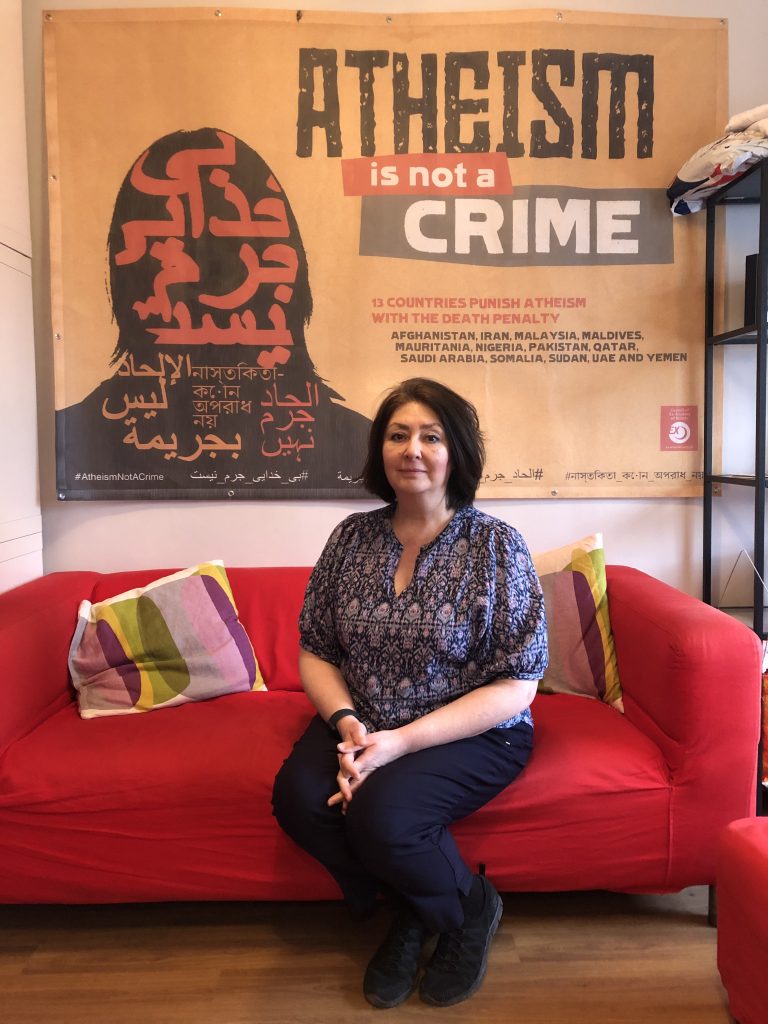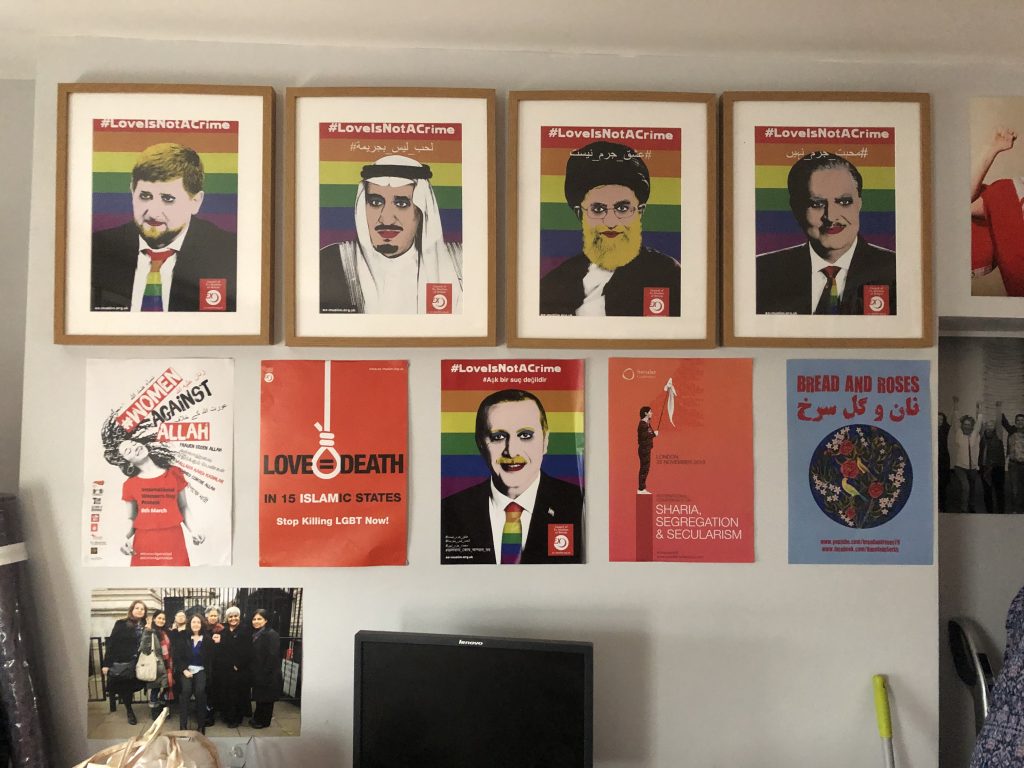Maryam Namazie ✒ Fighting religious intolerance is important, as is fighting intolerance against those who have no religion and are being killed for apostasy and blasphemy in countries under Islamic rule.
 |
| Photo by Victoria Gugenheim |
This year’s World Hijab Day’s theme is Veiling is Strength but it doesn’t take strength to do as you are told. The veiling of women is a religious imposition, often via force and compulsion. How can it be a woman’s ‘choice,’ when it is more often than not, the choice of the husband, father, brother, mullahs, religious states and organisations… There can be no choice in compulsion. This is a play on words to make the hijab palatable and conceal its role in controlling women and girls. Of course, some women will ‘choose’ the hijab, in the same way that some women will ‘choose’ to carry out FGM on their daughters, or ‘choose’ to throw themselves on the burning pyres of their husbands in the practice of suttee. However, the use of the term choice ignores the religious and cultural demands on women to comply (or else) and also the punishment if they don’t. Compliance is not choice.
World Hijab Day activists can promote the hijab all they want, especially when living safely in secular societies, but the reality of the hijab is one of terror, trauma and violence on the one hand, and women’s resistance against it on the other. The Woman, Life, Freedom revolution in Iran has struck a cord with women across the globe for this very reason.
See extended interview here:
Giulia Mengolini: In countries like Iran hijab is compulsory. Women who don’t respect the law are beaten, and sometimes killed, like Mahsa Amini. What does hijab mean for Iranian women?
Maryam Namazie: Where the hijab is compulsory, one can see its real purpose: to control women’s bodies and sexuality. The fact that girls must wear it from the age of six when they start school means that even children are not free from sexualisation and policing. Just recently, an 11 year old whose hijab had slipped off her head at school was beaten by a school official. According to the Hijab and Chastity law in Iran, children from 9-15 years who remove their veil will face a fine and can be banned from leaving the country up to 2 years. For adults, the sentence can be higher including prison sentences, loss of jobs, and even death as in the case of Mahsa Jina Amini.
Giulia Mengolini: Since 2013 World Hijab Day aims to raise awareness about the hijab and break stereotypes associated with Muslim women who choose to wear it. Could it be a choice? What do you think?
Maryam Namazie: This year’s World Hijab Day’s theme is Veiling is Strength but it doesn’t take strength to do as you are told. The veiling of women is a religious imposition, often via force and compulsion. How can it be a woman’s ‘choice,’ when it is more often than not, the choice of the husband, father, brother, mullahs, religious states and organisations… There can be no choice in compulsion. This is a play on words to make the hijab palatable and conceal its role in controlling women and girls. Of course, some women will ‘choose’ the hijab, in the same way that some women will ‘choose’ to carry out FGM on their daughters, or ‘choose’ to throw themselves on the burning pyres of their husbands in the practice of suttee. However, the use of the term choice ignores the religious and cultural demands on women to comply (or else) and also the punishment if they don’t. Compliance is not choice.
Giulia Mengolini: What do you say to those who say that World hijab Day fights religious intolerance?
Maryam Namazie: Fighting religious intolerance is important, as is fighting intolerance against those who have no religion and are being killed for apostasy and blasphemy in countries under Islamic rule. But you cannot fight religious intolerance by normalising misogyny.
Giulia Mengolini: On Tik Tok and Instagram there are more and more Muslim women who say and show they are proud to wear hijab: is it possible to be a feminist and wear hijab?
Maryam Namazie: Those who are proud of wearing the hijab are doing the bidding of the Islamists. This ‘pride’ is very much linked to the rise of religious fundamentalism. The veiling of women has increased since this rise, as has the use of Sharia law, violence against women, Islamic terrorism… The control of women’s bodies is a main pillar of the Islamist project for the right-wing restructuring of societies. Let’s be clear, the hijab is not just a piece of clothing. It’s not a choice, socially speaking. It is a tool to segregate women and girls and impose sex apartheid. This is no different from racial apartheid, except because it’s based on sex, it is acceptable and can be absurdly touted as a source of ‘pride.’
Giulia Mengolini: Medium of repression, but for some women symbol of empowerment: can these concepts coexist?
Maryam Namazie: White pride is also seen as a symbol of ’empowerment’ for some. it doesn’t make it right. That women promote their own oppression also doesn’t make it right. You can only see the veil in a positive light if you think that the bodies of women and girls are the source of chaos in the world and need to be covered and hidden from view. Modesty culture, which the veil promotes, is fundamentally an extension of rape culture. If a woman doesn’t cover herself, then men cannot be blamed for doing as they please. ‘She asked for it,’ is the mantra of this view. World Hijab Day activists can promote the hijab all they want, especially when living safely in secular societies, but the reality of the hijab is one of terror, trauma and violence on the one hand, and women’s resistance against it on the other. The Woman, Life, Freedom revolution in Iran has struck a cord with women across the globe for this very reason.
 |
| Maryam Namazie is an Iranian-born activist and Spokesperson of the Council of Ex-Muslims of Britain and One Law for All. |






















